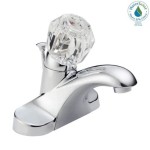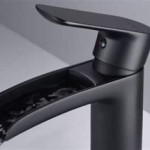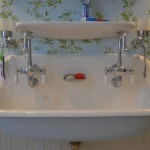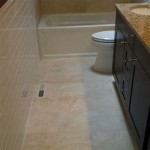What are Modern Bathroom Sinks Made Of?
Bathroom sinks, a fundamental element of any bathroom, have undergone significant transformations over the years. From the humble porcelain sinks of the past to the diverse array of materials available today, the evolution of bathroom sinks reflects both technological advancements and changing design preferences. This article explores the common materials used in modern bathroom sinks, highlighting their unique properties, advantages, and disadvantages.
Porcelain
Porcelain remains a popular choice for bathroom sinks due to its classic elegance and durability. Crafted from a mixture of clay, feldspar, and quartz, porcelain is fired at high temperatures, resulting in a dense, non-porous material. This non-porous nature makes porcelain sinks highly resistant to stains and bacteria, making them exceptionally hygienic. Their smooth, glossy surface is easy to clean and maintains its shine over time.
However, porcelain's inherent fragility makes it susceptible to chipping and cracking, especially with heavy use. Despite advancements in manufacturing techniques, porcelain sinks can be prone to scratches and discoloration if not properly maintained. Although porcelain sinks are often available in a wide range of colors and styles, they may not always be the most aesthetically versatile option for contemporary bathroom designs.
Ceramic
Ceramic, closely related to porcelain, is another widely used material for bathroom sinks. It is composed of clay and other minerals, fired at a lower temperature than porcelain. This results in a material that is less durable and resistant to scratches compared to porcelain. However, ceramic sinks are generally more affordable than porcelain, making them a popular choice for budget-conscious homeowners.
Although ceramic sinks are generally more porous than porcelain, they offer a wider range of colors and textures, allowing for greater design flexibility. Ceramic sinks can be glazed with various finishes to enhance their aesthetic appeal and provide additional protection against stains and scratches. However, it is crucial to note that ceramic sinks require regular cleaning and maintenance to prevent the build-up of dirt and grime, as well as to maintain their original luster.
Glass
Glass sinks have gained popularity in recent years, bringing a contemporary and sophisticated touch to bathroom designs. Their sleek, transparent appearance adds a sense of space and light to the bathroom, while their smooth, non-porous surface is easy to clean and resists stains. Glass sinks are available in a wide array of colors, patterns, and textures, allowing for personalized expression in bathroom design.
However, glass sinks are susceptible to scratches and chips, requiring careful handling and maintenance. They also require special cleaning products to prevent scratches and etching on their surface. Despite their aesthetic appeal, glass sinks can be more expensive than other materials, making them a luxury choice for many homeowners.
Stone
Natural stone, such as granite, marble, and limestone, brings a touch of elegance and sophistication to bathroom sinks. These materials offer a unique look and feel, with distinctive patterns and veining. Stone sinks are exceptionally durable and resistant to scratches and stains. They provide a luxurious feel and add a touch of natural beauty to the bathroom space.
However, stone sinks are typically more expensive than other materials and require regular sealing to maintain their water-resistant properties and prevent staining. They can also be prone to etching from acidic substances, such as lemon juice or vinegar.
Acrylic
Acrylic sinks are gaining popularity due to their affordability, durability, and versatility. Made from a polymer resin, acrylic sinks are lightweight, non-porous, and resistant to stains and scratches. They are also available in a broad spectrum of colors, shapes, and sizes, catering to diverse design preferences.
Acrylic sinks are generally less expensive than other materials and are relatively easy to maintain. They are also known for their ability to retain heat, making them a comfortable choice for handwashing. However, acrylic sinks can scratch if exposed to abrasive cleaning agents. They are also susceptible to fading and discoloration if exposed to prolonged sunlight.
Stainless Steel
Stainless steel is a popular choice for bathroom sinks in modern and contemporary bathroom designs. Its sleek, metallic finish complements various décor styles and adds a sense of industrial chic to the space. Stainless steel is highly durable, resistant to stains, and easy to clean. It is also a hygienic material, as it inhibits the growth of bacteria and mold.
However, stainless steel sinks can be prone to scratches, especially with heavy use. They can also show water spots if not properly dried after use. While stainless steel is a relatively affordable material, it can be more expensive than acrylic or ceramic.
Solid Surface
Solid surface sinks are made from a composite material, typically a blend of acrylic or polyester resin and mineral fillers. This material is known for its seamless construction, which eliminates the need for grout lines, making it easy to clean and maintain. Solid surface sinks are available in a wide range of colors and patterns, offering design versatility.
Solid surface sinks are highly durable, resistant to stains and scratches, and can be easily repaired. They are also non-porous, making them highly hygienic. However, solid surface sinks can be more expensive than acrylic or ceramic, and they may require special cleaning products and maintenance techniques.
The choice of material for a bathroom sink depends on factors such as budget, style preferences, and desired durability. Each material has its unique advantages and disadvantages, and careful consideration must be given to ensure the chosen sink complements the overall design of the bathroom and meets the individual homeowner's needs.

Bathroom Sinks In Porcelain Stoneware Kronos Ceramiche

The Most Common Sinks Materials Pros And Cons Before You Purchase In 2024 Badeloft
Bathroom Sink Material Guide Signature Hardware

Bathroom Sinks In Porcelain Stoneware Kronos Ceramiche

The 15 Types Of Bathroom Sinks Family Handyman
Bathroom Sink Material Guide Signature Hardware

Kkr Artificial Stone Bathroom Sink Vanity Modern Sinks China Made In Com
Types Of Modern Bathroom Sink Materials Glass Porcelain Stone

The Right Vessel Sink Can Create Perfect Contemporary Bathroom Beautiful Homes

Wash Basin Artificial Stone Solid Surface Rectangular Bathroom Vanity Sinks Modern Kkr M072 Kingkonree
Related Posts







